10 Healthiest Root Vegetables
Root vegetables are a rich source of essential nutrients and are among the healthiest foods that you can add to your diet. They are excellent sources of fiber, vitamin C, potassium and other important nutrients.
Root vegetables, a veritable treasure trove of essential nutrients, are undoubtedly among the healthiest food options you can incorporate into your daily meal plan. They are not just ordinary food, but a powerhouse of nutrition, offering an astounding variety of benefits that go well beyond their initial appeal. From the humble potato to the vibrant beetroot, each root vegetable brings its own unique blend of nutrients and flavors to the table, making them a truly versatile addition to any diet. These underground gems are particularly lauded for their high fiber content, an indispensable component of a healthy diet that aids digestion, helps maintain a healthy weight, and keeps chronic diseases like heart diseases at bay. But the nutritional goodness of root vegetables doesn't stop there.

They're also an excellent source of vitamin C, an essential nutrient known for its immune-boosting properties and its role in maintaining skin health. Moreover, root vegetables are rich in potassium, a key mineral that helps regulate fluid balance, nerve signals, and muscle contractions in the body.
And let's not forget the plethora of other important nutrients these vegetables provide, including a variety of B vitamins, antioxidants, and minerals like iron and calcium. When you dive into the world of root vegetables, you're not just adding a new ingredient to your diet, but a whole host of nutritional advantages. So the next time you're at the grocery store, don't overlook these subterranean superstars. They're a simple, delicious way to give your body the nutrients it needs to function at its best.
1. Sweet Potatoes
Sweet potatoes top the list of the healthiest root vegetables. They are high in beta carotene, which is converted into vitamin A in our body.
Sweet potato recipes often involve baking or roasting, which helps to bring out their natural sweetness. Sweet potatoes, a staple in many diets around the world, indisputably reign as the healthiest of all root vegetables. Their unique nutritional profile packs a powerful punch of health benefits. Notably, they are rich in beta carotene, a powerful antioxidant that gives them their vibrant orange hue. This compound is not just a pretty face; in fact, once ingested, our bodies transform it into vitamin A, a crucial element for maintaining optimal vision, promoting a healthy immune system, and supporting overall growth and development. One of the most delightful aspects of sweet potatoes is their inherent versatility, which is showcased in a myriad of recipes.

From vibrant salads to hearty mains, sweet potatoes can be prepared in numerous ways. However, it's often through baking or roasting that these tubers truly shine.
These cooking methods help to caramelize their natural sugars, enhancing their inherent sweetness and creating a delicious, melt-in-your-mouth texture. Considering their health benefits and culinary versatility, it's no wonder sweet potatoes are becoming an increasingly popular choice for the health-conscious and food enthusiasts alike. In conclusion, the humble sweet potato is far more than just a root vegetable; it's a nutritional powerhouse with an impressive versatility in the kitchen. So, whether you're looking to boost your vitamin intake, explore new recipes, or simply enjoy a delicious meal, incorporating sweet potatoes into your diet is a delicious and healthful choice.
2. Turnips
Turnips are a great source of vitamins K, A, C, E, and B-6, as well as folate, potassium, calcium, and copper. Turnip recipes can be as simple as roasting them with a bit of olive oil and herbs, or adding them to a hearty stew.
Turnips, a humble root vegetable often overlooked in our daily diet, are indeed a treasure trove of essential nutrients. They are power-packed with a myriad of vitamins including K, A, C, E, and B-6, each playing a vital role in maintaining our overall health. From boosting immunity with Vitamin C to promoting bone health with Vitamin K, turnips provide a wellness punch in every bite. In addition to this, they also boast of substantial amounts of folate, potassium, calcium, and copper, which are pivotal in supporting body functions like blood pressure regulation, bone health maintenance, and aiding in red blood cell formation. But the magic of turnips doesn't just end with their nutritional profile, they also lend themselves wonderfully to a host of cooking methods.
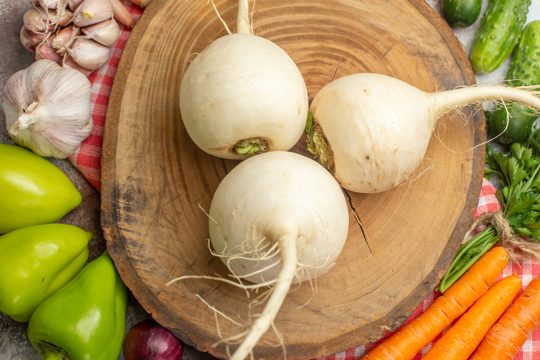
Turnip recipes can range from the simplest of preparations to the most elaborate ones. Imagine roasting them to perfection, coated lightly in a drizzle of olive oil, seasoned generously with a medley of herbs, the end result is a delicious side that is as healthy as it is satisfying.
Or perhaps, consider adding them to a hearty stew, their sweet, earthy flavor complementing the richness of the broth, adding depth and complexity to the dish. So, the next time you're planning your menu, don't forget to include this versatile vegetable. Whether you roast them, stew them, or even enjoy them raw in a salad, turnips are a great way to add a nutritional boost to your meals. They're not just a source of vitamins and minerals, but also a testament to the fact that healthy food can indeed be delicious and exciting.
3. Beets
Beets are packed with essential nutrients like fiber, folate and vitamin C. Beets are also high in nitrates, which can lower blood pressure.
Beet recipes can include roasting them or using them in a refreshing salad. Beets, those vibrant, jewel-toned root vegetables, are a treasure trove of essential nutrients that your body craves and needs. Bursting with dietary fiber, they aid in improving digestion, keeping your gut healthy and happy. They're also a rich source of folate, a vitamin that plays a key role in emotional and mental health. Not to forget, the healthy dose of vitamin C they provide, a powerful antioxidant that boosts your immune system and keeps your skin glowing. But the wonders of beets don't stop at vitamins and fiber. They truly distinguish themselves with their high nitrate content.
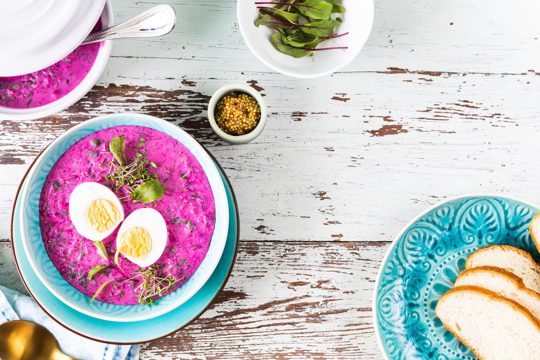
These naturally occurring compounds have a remarkable effect on blood pressure, helping to lower it and thus, reducing the risk of heart disease. This makes beets a heart-healthy choice that you can incorporate into your diet without a second thought.
When it comes to using beets in your meals, the possibilities are as diverse as they are delicious. Roasting beets brings out their natural sweetness, making them a delightful side dish or a robust addition to salads. Speaking of salads, using raw beets adds a refreshing crunch and a burst of flavor that can elevate any salad from ordinary to extraordinary. Alternatively, you can use them in smoothies or juices for a health-packed, energizing drink. So, whether you're a seasoned beet lover or just starting to explore this nutritious veggie, there's always a new and tantalizing recipe to try. Beets are not just a root vegetable, they're a versatile superfood that deserves a place on your plate.
4. Radishes
Radishes are crunchy, packed with fiber and very low in calories. They also contain antioxidants that help fight diseases.
Radish recipes are often simple, including them raw in salads or pickling them for a tangy treat. Radishes, with their signature crunchy texture, are a delightful surprise on the palate. They not only offer a fresh, sharp taste, but also are a treasure trove of dietary fiber that aids in digestion and promotes a feeling of fullness, all while being surprisingly low in calories. They are an ideal addition to any diet, especially for those who are health-conscious or seeking weight loss solutions. Furthermore, radishes are not merely a low-calorie food option. They are actually powerhouses of nutrition, bursting with potent antioxidants.
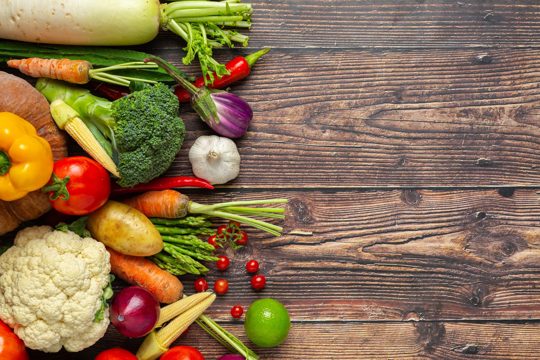
These compounds play a crucial role in combating harmful free radicals in our bodies, thereby helping to fight off various diseases and boost overall health. Radishes can be a vibrant and wholesome addition to your daily diet, providing essential nutrients while also contributing to disease prevention.
While radishes are often overlooked in culinary conversations, their versatility in the kitchen is commendable. Radish recipes are often straightforward and easy to prepare, making them accessible to even the novice cook. Whether you choose to include them raw in salads, adding a fresh, crisp element to your greens, or pickle them for a tangy, flavorful treat, radishes can add a unique twist to your dishes. So why not experiment with these crimson delights in your kitchen? Their simplicity, combined with their nutritional benefits and unique taste, make radishes a worthy addition to any meal.
5. Onions
Onions are a staple in many dishes and are known for their antibacterial properties. They are rich in vitamins C and B6, and also in fiber.
Onion recipes can range from caramelized onions to onion soups, adding flavor and health benefits to the dishes. Onions, with their pungent aroma and flavorful taste, act as an integral ingredient in a plethora of culinary delights across the globe. Their universal appeal stems not only from their ability to enhance the taste of any dish but also from their numerous health benefits. Notably, onions are renowned for their potent antibacterial properties, making them a natural remedy against a variety of infections and diseases. Furthermore, they are a treasure trove of essential vitamins and nutrients. They come packed with vitamin C, a potent antioxidant that bolsters the immune system, aids in healing, and promotes healthy skin.
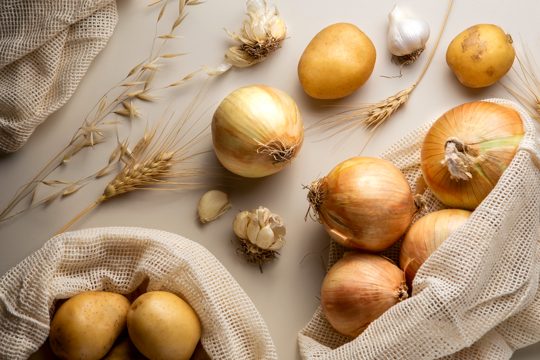
Likewise, vitamin B6 present in onions plays a crucial role in improving brain health and mood by aiding in the production of serotonin and norepinephrine. It also helps synthesize melatonin, which regulates sleep.
Additionally, the abundance of dietary fiber in onions contributes to healthy digestion and weight management, making them a diet-friendly choice for those conscious of their waistlines. The culinary versatility of onions is another aspect that makes them a favorite among chefs and home cooks alike. The repertoire of onion recipes is incredibly diverse, catering to all palates and dietary preferences. From the sweet, melt-in-your-mouth caramelized onions that add a depth of flavor to steaks and burgers, to comforting and nourishing onion soups that warm you up from the inside out, onions prove their indispensability in the kitchen. Their unique ability to transform dishes with their distinct flavor and health benefits is truly remarkable, making them a must-have in every pantry.
6. Garlic
Garlic has been used for centuries for its medicinal properties. It is known to boost the immune system, reduce blood pressure and improve cholesterol levels.
Garlic recipes are countless, from garlic bread to garlic-infused oils. Garlic, one of nature's most potent superfoods, has been celebrated for its incredible medicinal properties for hundreds, if not thousands of years. From the ancient Egyptians through to modern-day health enthusiasts, its benefits have been acknowledged and appreciated. Its reputation as a powerful immune system booster is well-known, helping the body fend off common colds and more serious infections. What's more, it is a natural remedy for hypertension, aiding in the reduction of blood pressure levels and thus promoting a healthier heart. Moreover, garlic has been proven to play a significant role in improving cholesterol levels. Regular consumption of this wonder bulb can lower total and LDL cholesterol, contributing to a healthier cardiovascular system.
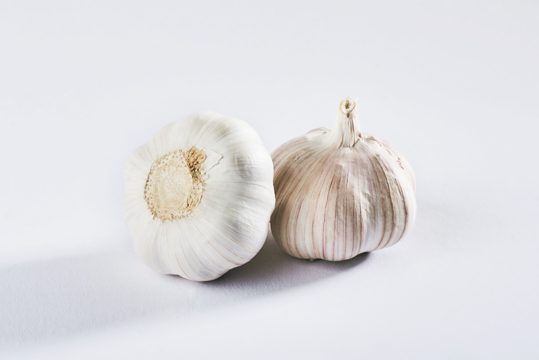
This, in turn, reduces the risk of heart diseases, making garlic a heart-friendly ingredient that should be a part of your daily diet. But the beauty of garlic extends beyond its health benefits.
It's a versatile ingredient that has found its way into countless recipes, turning ordinary dishes into extraordinary culinary experiences. The humble garlic bread, a beloved side dish in many cultures, is just the tip of the iceberg. There are garlic-infused oils that can elevate a simple sauté to a gourmet dish, and robust garlic sauces that add depth and complexity to a variety of meals. From pastas to soups, from marinades to dips, the potential of garlic in the culinary world is boundless. So, whether you're a food enthusiast looking for a flavor enhancer, or a health-conscious individual seeking natural remedies, garlic is one ingredient that deserves a permanent place in your kitchen. With its multitude of health benefits and its ability to transform meals, garlic truly is a gift that keeps on giving.
7. Carrots
Carrots are a good source of several vitamins and minerals, especially biotin, potassium, and vitamins A (from beta carotene), K1 (phylloquinone), and B6. Carrot recipes can range from a simple carrot salad to a delicious carrot soup.
Carrots, a vibrant and crunchy vegetable, are not only visually appealing but also packed with a wealth of health benefits. They are a powerhouse of vitamins and minerals, and incorporating them into your diet can significantly boost your nutritional intake. They are particularly high in biotin, a B vitamin that plays an essential role in fat and protein metabolism. Furthermore, they also provide a good amount of potassium, a mineral that aids in maintaining optimal blood pressure levels. However, the star attribute of carrots is their exceptional supply of vitamins A, derived from beta carotene, an antioxidant that is vital for good eye health and immune function. Additionally, they are rich in vitamin K1, also known as phylloquinone, which is crucial for blood coagulation and bone health.
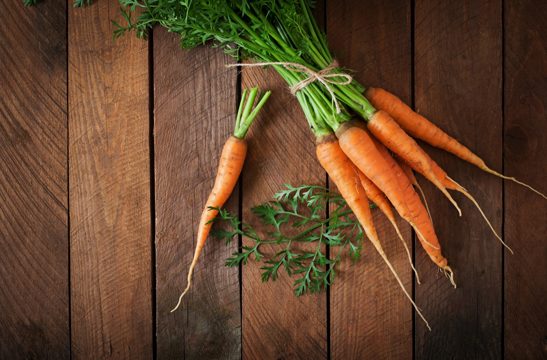
Another nutrient that's abundant in these root vegetables is vitamin B6, which contributes to brain development and function, and aids in the synthesis of certain hormones. The versatility of carrots makes them an excellent addition to a variety of dishes.
You can enjoy them in their raw form in a refreshing carrot salad, where their crisp texture and natural sweetness shine. However, they are just as delightful in cooked forms, such as in a velvety carrot soup that warms the heart and soothes the soul. They can also be grated into muffins or cakes for a nutrient boost or juiced for a refreshing drink. So, whether you're a seasoned cook or a novice in the kitchen, there are countless ways to enjoy this nutritious and delicious vegetable.
8. Celery Root
Celery root, also known as celeriac, is high in fiber and vitamins K and C. It has a unique flavor that can enhance various dishes.
A simple celery root recipe might involve roasting it or using it in soups. Celery root, commonly referred to as celeriac, is a vegetable that is often overlooked but packs a punch when it comes to nutritional value. It's a powerhouse of health benefits, boasting high levels of dietary fiber that aid in digestion, as well as an abundance of vitamins K and C, which are essential for good health. Its unique flavor - a delightful blend of celery and parsley with a slight nutty undertone - can add a refreshing twist to a variety of dishes, serving as a culinary secret weapon in your kitchen. For the uninitiated, celery root may seem intimidating with its gnarled appearance, but it's surprisingly versatile and easy to use. One of the simplest ways to prepare this vegetable is by roasting it.

When roasted, celery root develops a rich, caramelized flavor and a delightful tender-crisp texture that can be a satisfying addition to any meal. It's as simple as dicing it up, tossing it with a bit of olive oil and your favorite herbs, and roasting it in the oven.
Another popular usage of celery root is in soups. It can be the star ingredient in a creamy celeriac soup, or serve as a flavorful addition to broths, chowders, and stews. When cooked and blended, it develops a velvety, creamy texture, adding depth and complexity to the soup. Whether roasted or simmered in a comforting soup, the humble celery root can elevate your dishes, making them not only more nutritious but also more flavorful.
9. Horseradish
Horseradish is a powerful plant known for its sinus-clearing heat. Its also full of nutrients like fiber, vitamin C, and folate.
It’s commonly used as a condiment to add heat to dishes. Horseradish, with its fiery, sinus-clearing heat, is a plant that carries a potent punch. It is not only recognized for its unique and robust flavor but also its impressive nutritional profile. Every bite of horseradish is packed with beneficial nutrients like dietary fiber, which aids in digestion, vitamin C, a powerful antioxidant that boosts immune function, and folate, essential for DNA synthesis and repair. This extraordinary plant has more to offer beyond its nutritional benefits. Its heat and distinct taste make it a popular choice in the culinary world.
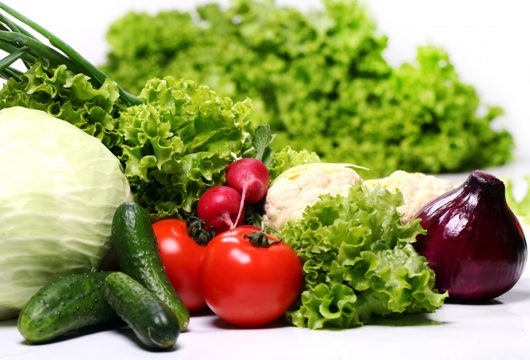
Often ground into a spicy paste, horseradish is commonly employed as a vivacious condiment to enliven dishes, from a simple sandwich to a gourmet roast beef dinner. Its bold flavor can transform a bland dish into a gastronomic delight, adding a layer of complexity and spiciness that tantalizes the taste buds.
But horseradish doesn't stop there. Its versatility extends beyond the kitchen. The plant has been utilized in traditional medicine for its potential health benefits, including its antimicrobial properties. In this way, horseradish is more than just a plant; it's a testament to nature's power - offering flavor, nutrition, and health benefits all in one fiery package. So next time you're looking to add some heat and health to your meals, consider the mighty horseradish.
10. Rutabaga
Rutabaga, a cross between a cabbage and turnip, is a good source of antioxidants, including vitamin C. It can be used in a similar way to potatoes but has fewer calories.
Rutabaga, which is a delightful hybrid of cabbage and turnip, is an incredible powerhouse of beneficial antioxidants, notably vitamin C. This underrated vegetable not only adds a rich, earthy flavor to your meals, but also brings a wealth of health benefits to your plate. It's a treasure trove of nutrients that can help in boosting your immune system, skin health, and overall well-being. In the culinary world, Rutabagas can be used in a manner similar to the versatile potato. However, they come with an added advantage - fewer calories.

So, if you're looking to switch up your diet, or simply want to experiment with lower-calorie options, rutabagas are an ideal choice. They can be roasted, mashed, or even used in soups and stews, introducing a unique flavor profile to your dishes.
In conclusion, while rutabagas might not be the most glamorous of vegetables, they certainly pack a punch in terms of flavor and nutrition. So why not give them a try? Whether you're a health enthusiast or a culinary adventurer, rutabagas are a fantastic addition to your grocery list. So next time you're in the produce aisle, don't overlook the humble rutabaga - it's a hidden gem waiting to be discovered.
Final Thoughts on the Healthiest Root Vegetables
Root vegetables are some of the healthiest foods you can eat. They are packed with fiber, vitamins, and minerals, and are generally low in calories.
Whether you choose to roast them, boil them, or add them to a salad, they are a great way to boost your health and add variety to your diet. Root vegetables are undeniably among the healthiest foods you can incorporate into your daily diet. They're a powerhouse of nutrition, brimming with an abundance of fiber, vitamins, and minerals that your body craves. Moreover, they are typically low in calories, making them an ideal choice for those who are health-conscious or aiming for weight loss. From the earthy goodness of beetroots to the sweet crunch of carrots, these subterranean treasures offer a diverse range of flavors and textures that can be a delightful addition to your meals. The beauty of root vegetables is their versatility.

You have the freedom to roast them to caramelized perfection, bringing out their natural sweetness, or boil them to tender submission, making them a soft comforting presence in your soups and stews. Alternatively, you can add a refreshing crunch to your salads by incorporating them in their raw form.
Incorporating these nature's gems into your meals not only enhances your health but also adds a vibrant variety to your diet. They lend themselves to an array of culinary explorations, keeping your palate intrigued and your meals exciting. Every bite is a step towards better health and a celebration of flavors. So, don't shy away from the humble root vegetables. Embrace them, enjoy them, and reap the myriad health benefits they bring to your table.
Other Root Vegetables
There are many other root vegetables that are also healthy, like parsnips, jicama, and yucca. These too can be included in your diet for their health benefits.
Remember, the healthiest fat to cook these vegetables in is usually olive oil, due to its high monounsaturated fat content and various health benefits. While we often gravitate towards common vegetables such as carrots and potatoes, a whole world of nutritious alternatives awaits our exploration. Among these are the often overlooked root vegetables such as parsnips, jicama, and yucca. These are not just delightful in terms of their unique flavors, but they also pack a punch in terms of their health benefits. Parsnips, for instance, are high in fiber and potassium, while jicama is a great source of vitamin C and fiber. Yucca, on the other hand, not only offers dietary fiber but also provides beneficial antioxidants.
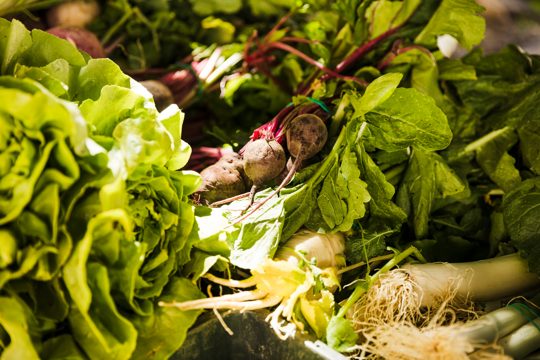
Incorporating these root vegetables into your daily meals is a superb way of diversifying your diet and enhancing the nutritional value of your dishes. You could try roasting parsnips as a side dish, adding jicama into your salads for a refreshing crunch, or making yucca fries for a unique take on the traditional potato fries.
As you venture into these culinary experiments, it's essential to remember the role of cooking oils in your diet. The oil you use not only affects the taste of your food but can also significantly impact your health. Olive oil, with its high monounsaturated fat content, is typically the most recommended choice. The monounsaturated fats in olive oil are known to help reduce bad cholesterol levels and provide a slew of other health benefits, including aiding in weight loss and reducing the risk of heart disease. So, try roasting, sautéing, or even dressing these root vegetables with a drizzle of olive oil for a healthful, flavorful, and satisfying meal.
About us
Welcome to SeniorCaresHub! Welcome to our comprehensive senior care destination! We pride ourselves on being a trusted resource for all things related to caring for aging loved ones. We understand the unique needs and challenges that come with senior care, and our mission is to provide you with the information, resources, and support you need to confidently navigate this journey and help you provide the best possible care for your aging loved one.

